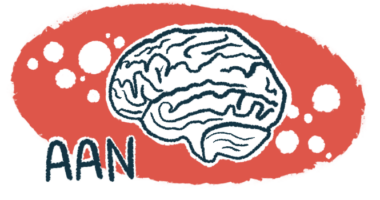Depression Before ALS Diagnosis Linked to Higher Risk of Cognitive Impairments

People affected by depression before being diagnosed with amyotrophic lateral sclerosis (ALS) have a higher risk of developing cognitive impairments at later stages of the disease, a study says.
The findings of the study, “Depression and risk of cognitive dysfunctions in amyotrophic lateral sclerosis,” were published in Acta Neurologica Scandinavica.
ALS is a progressive neurological disorder in which motor neurons — the nerve cells responsible for controlling voluntary muscles — gradually degenerate and die, causing muscles to shrink (atrophy) and become weaker. Besides lack of muscle strength, more than half of ALS patients also experience cognitive impairments over the course of the disease.
“At the same time, in addition to these cognitive disorders, mood disorders may also occur in ALS patients after diagnosis as a result of the fatal prognosis. It is noted that patients with ALS have a prevalence of depressive disorders higher than healthy subjects, but lower than patients with a variety of other medical and neurological conditions, such as multiple sclerosis, Parkinson’s and Alzheimer’s disease,” the investigators stated.
However, the impact of depression on patients’ clinical outcomes before ALS diagnosis is still unclear.
Scientists from the University of Piemonte Orientale in Italy set out to evaluate the occurrence of depression among ALS patients before being diagnosed, and compare its prevalence among those who experienced cognitive impairments in the course of the disease and those who did not.
Between January 2008 and December 2017, the retrospective study recruited 318 patients, establishing the presence of depression in the five years before ALS diagnosis. All participants performed neuropsychological tests to assess their executive functions, behavior, language, and memory.
From the 318 patients initially enrolled, 40 (12.58%) had received a solid diagnosis of depression. In this group, 29 (72.5%) developed cognitive impairments at later stages of disease progression. From the remaining 278 (87.42%) who were not diagnosed with depression before developing ALS, 83 (29.9%) developed cognitive impairments at later stages of disease and 195 (70.1%) did not.
In addition, researchers found that patients diagnosed with depression before developing ALS tended to have a shorter lifespan compared to those who were never diagnosed with depression before developing ALS (38.47 months versus 52.92 months, on average). This was also true for patients who only experienced cognitive impairments (47.95 months), or those who experienced both depression and cognitive impairments (34.73 months), compared to those who experienced neither depression nor cognitive impairments (55.03 months).
“In our study, we reported a high prevalence of depression in the past in patients who developed cognitive impairment during the ALS course, as compared to patients without cognitive deficits, showing also that patients with both had a shorter survival time,” the investigators said.
“In conclusion, we seek to direct attention also toward non-motor symptoms during a multidisciplinary approach, as the ability to predict the possible appearance of cognitive disorders can facilitate both the management of patients and improve the organization of caregivers and the family setting. Moreover, depression before ALS seems to be associated with a neurodegenerative process, that it should be kept in mind to develop future neuroprotective strategies,” the scientists concluded.






